Four Perfect Days: Read the Winning Mini Essays From Our Flash Contest
We were over the moon about just how many excellent submissions you all sent in to our mini essay contest—check out our favorite ones.
With our 2025 Narratively Memoir Prize underway, we recently ran a mini flash contest over at Narratively Academy to get writers thinking about telling compelling personal stories. We got so many submissions — and so many that we seriously loved — we couldn’t narrow it down to just one, so we’re publishing our four favorites here. A perfect bundle of mini essays to read while you travel home for the long holiday weekend or avoid it altogether. Enjoy!
For the First Time, We Were Explorers
By Roger Pierangelo
While playing Monopoly under my backyard awning, we complained that playing baseball on the street had become too risky — we were hitting too far and might break windows. Then Tommy, the big dreamer (and the only one who wore beach sandals while biking), suggested something wild:
“Why don’t we ride to Alley Pond Park and play there?”
Everyone froze. Larry blurted, “Are you crazy? I’ll never see my family again!” Billy shrieked, “That’s, like…seven miles! We could end up in Ohio!”
My dad had driven us there many times. It wasn’t far by car, but on bikes, without adults, it felt like crossing the Rockies. Still, Alley Pond was paradise: real bases, real dirt, no broken windows. I asked my dad to drive slowly along the route so I could memorize it and lead the group myself. He agreed and simply said, “Be home by 5 for dinner.”
That was parenting in the ’50s: simple, trusting and maybe based on the belief that kids could find their way home like lost pets.
I called a meeting under the awning. Our “band of brothers” gathered like nervous generals, studying my notes as if they were battle plans. Questions flew:
“What if we get a flat tire?”
“Can we eat at Choo Choo’s on the way back?”
My cousin John — the human lunchbox — asked if there’d be room for his Italian heroes, cannoli and thermos of minestrone.
Departure: 9 a.m. Gear: bikes, gloves, baseballs, courage.
We had no phones, no helmets, no sunscreen and no clue — just two wheels and a big dream. We returned sunburned and grinning at 4:58, just in time for dinner.
No one got lost. No one smoked. And John’s lunch survived — minus one cannoli.
For the first time, we weren’t just kids. We were explorers.
Dr. Roger Pierangelo is a clinical and forensic psychologist, author of 38 books on psychology, humor and parenting, and has had numerous articles published in magazines and newspapers.
Doorway to Hope
By Abby Ross
I told my husband that if he was going to die or leave me, this was the right time. Four weeks earlier, I’d learned I needed a biopsy after receiving an abnormal mammogram and M.R.I. results. Three weeks earlier, the crushing election outcome. Two weeks earlier, I had submitted my resignation after 14 years at an organization I truly loved but no longer recognized. I was exhausted, depleted and caught in a whirlwind of uncertainty.
Instead of joining the crowds in post-Thanksgiving madness, we escaped from our New York City home to Asbury Park, New Jersey. This beach town has charmed us for years with its historic oceanfront buildings, long boardwalk and unmistakable personality. Where else could we have once stumbled upon a punk rock flea market and a pug dog costume contest in the same venue? (Seeing pugs wearing fedoras and Hawaiian shirts while spiky mohawked vendors sell merchandise is a mashup I recommend for everyone.)
On this chilly, bright November afternoon, local vendors were throwing a holiday bazaar. Before perusing, we ordered a hot chocolate and exited for a stroll in the cold.
Immediately, we sensed something special was underway. A few people were stopped and looking intently toward the ocean, and several more had crossed the beach and were gazing from the water’s edge.
Whales. A group of seven humpback whales were putting on a show. We rushed to get as close as possible and stood awed for the next 20 minutes as they slowly jaunted down the shore while jumping, twisting and coming so near at times that, had it been summer, they would’ve been mingling with swimmers.
I’ve heard spotting whales brings good fortune, wisdom and peace. Maybe. But that day, on that beach, as I watched in silent wonder, they managed to crack open a whale-sized doorway to hope.
Abby Ross is a writer living in New York City.
When the Wedding Came to Grandma
By Erika Lee
It wasn’t the real wedding, but it might be the one I remember most.
My brother was going to get married the next day and our grandmother — too sick to travel, barely able to leave her bed — couldn’t be there. So we brought the wedding to her.
That morning, my mom set out porcelain cups for tea, the same ones my grandma used to serve guests decades ago. My dad wore a suit, I put on the satin dress I planned to wear to the ceremony, and my brother and his wife arrived glowing. We decided to do the Chinese tea ceremony in her apartment, right there beside her bed.
When my brother knelt to pour the tea, my grandma reached for his hand. Her voice was weak, but she managed to say, “You did good” in our native Cantonese. His wife bowed and offered her the cup, both of them trying not to cry. My grandma smiled, her eyes glassy but bright, and sipped just a little. The room was quiet except for the sound of her saying their names, blessing them the way tradition asks: steady, loving, final.
We took photos after, all of us in our wedding clothes, my grandma in her best dress and a silk scarf around her shoulders. She looked small, but proud.
It wasn’t a big day, not in the usual sense. No music, no banquet, no crowd. Just family, tea and the weight of love trying to make up for distance. It felt like time stopped for her, for us. Like the whole world had folded down to fit inside that tiny room, long enough for her to see her grandson get married.
Erika Lee is a writer in Los Angeles.
The Last Day: A Silent Farewell
By Millie Kerr
It was the last day. Not its last day, but our last day with it.
The last day we owned the family ranch, a place of shallow creeks, indigenous American paintings marking limestone caves and birds whose calls I hadn’t learned but wanted to. Family memories would, without a home, fade away.
My attachment to place is so intense, it’s pathological. I attach memories to places, not
gravestones. The dead live in the places they physically inhabited, and my inability to visit such places tears my connections apart. My deceased family memories fade into ghosts wandering the earth. Maybe that’s a good thing — setting them free.
I drove to the ranch alone, which I’d never done before, to memorialize its passing. It was a burning hot day, cloudless, but full of nature’s sounds. I unlocked the front gate and weaved around the ranch’s rolling acreage, only taking my favorite drives. I ended at the small lake where we used to spot nutria. At dusk, my family would stand outside
silently watching the sun go down over the lake. It shimmered pink.
I cautiously descended to the lake. I’d never swum in it, fearful of prehistoric alligator gars, but I couldn’t resist. I took off my clothes, jumped off the small wooden dock, climbed back on. Then I lounged like a cat. On my way out, I stopped to carve my initials onto a remote portion of a wooden fence. Cliché, I thought, but maybe not? No one would ever see the carvings but me.
Dusk appeared. It was time to go. As I passed across the cattle guard once more, I said goodbye. It was over. What mattered was that I’d said goodbye on my own terms. Farewell was sweeter that way.
Millie Kerr is an author and journalist focused on wildlife conservation. See more at milliekerr.com.



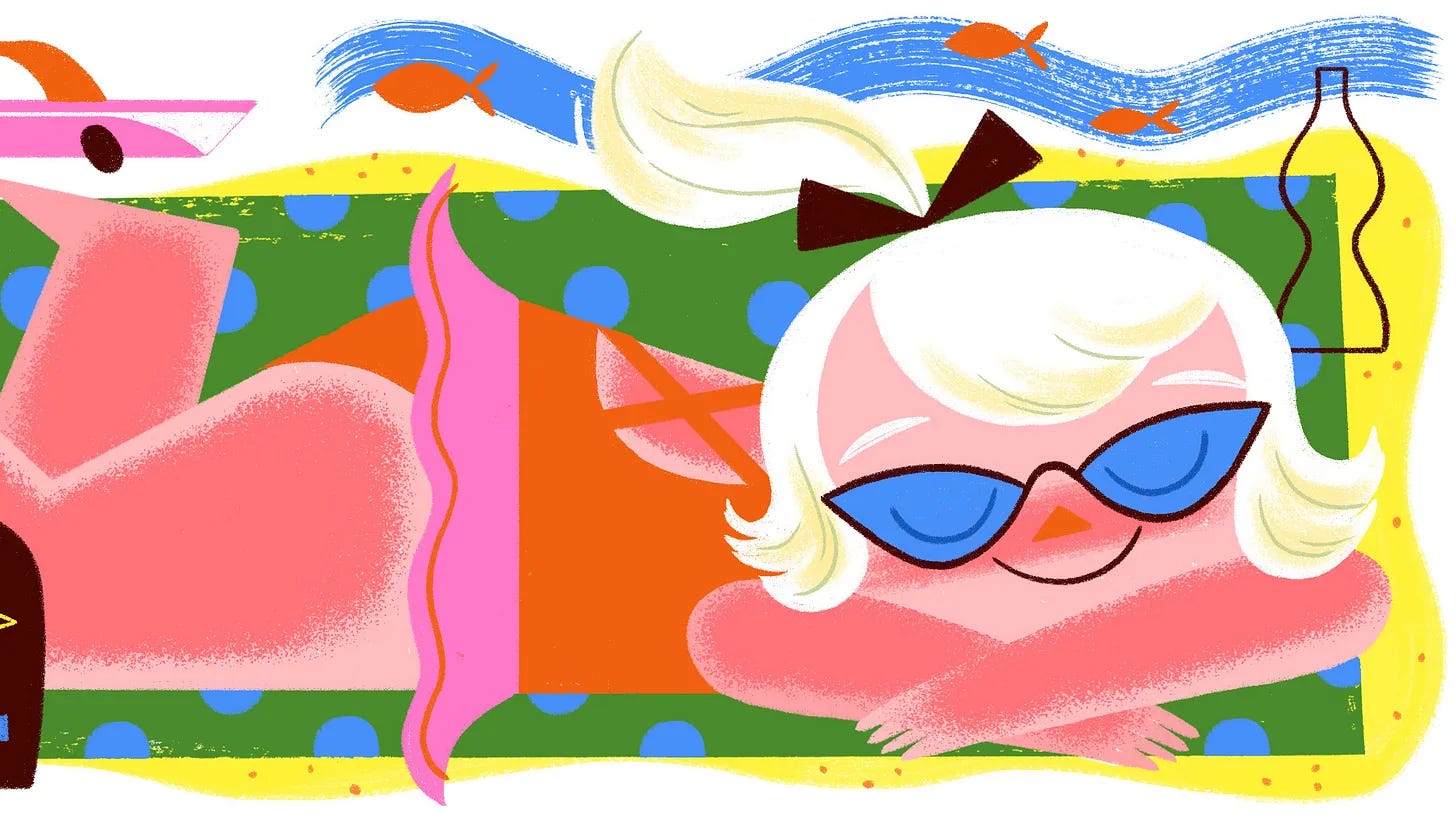
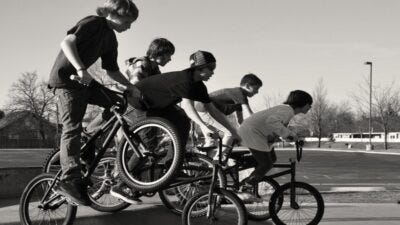
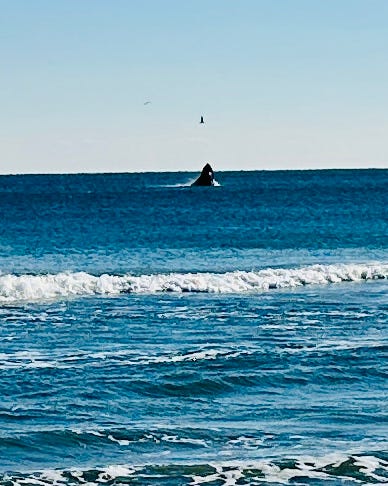
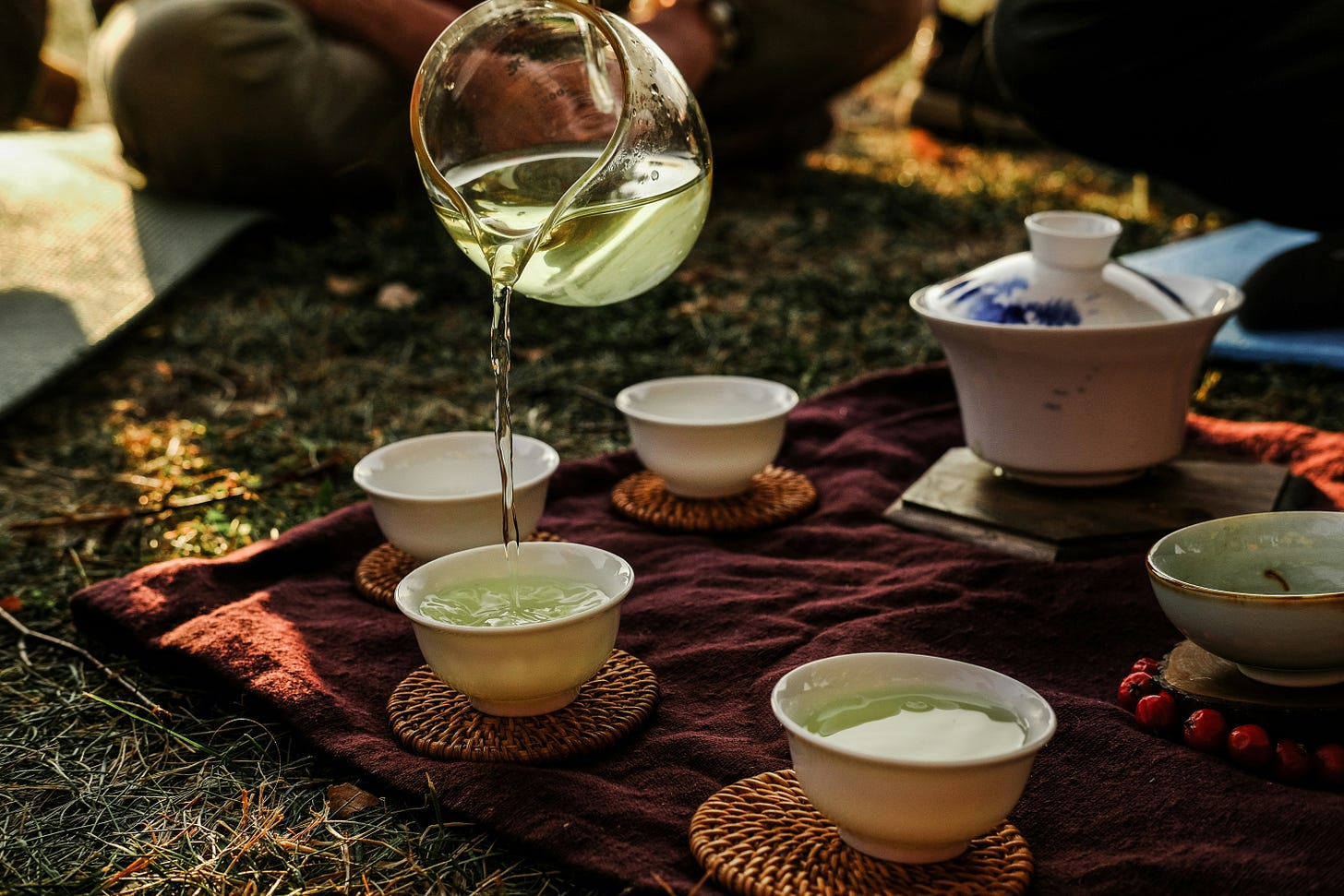
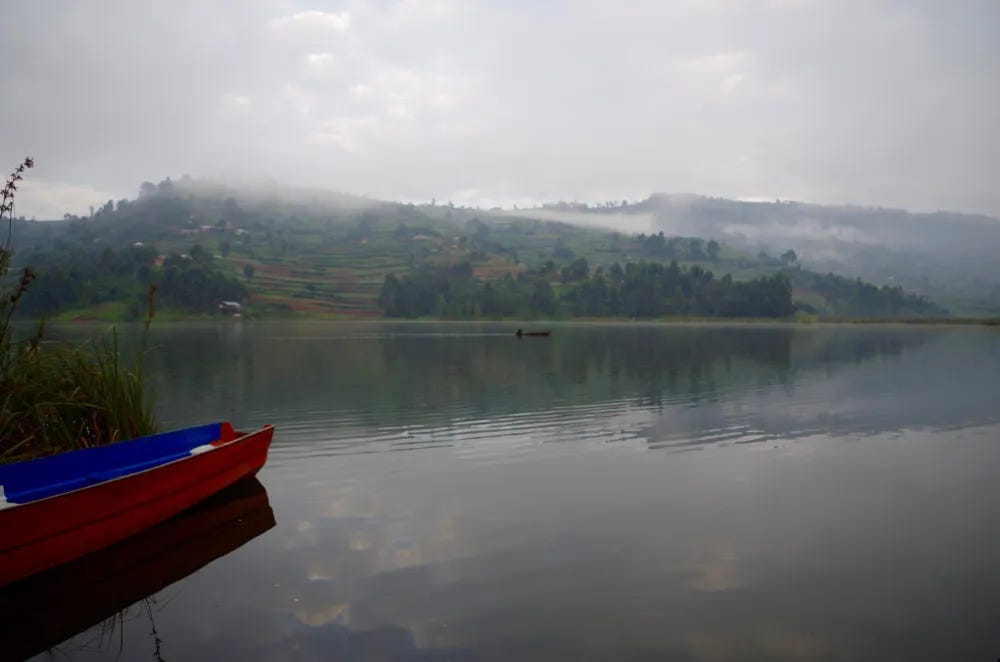
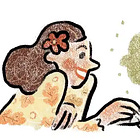
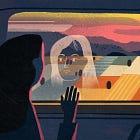
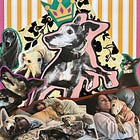
Great pieces and wonderful writing. Congrats to you all for doing the work—and submitting!
Lovely childhood memory!